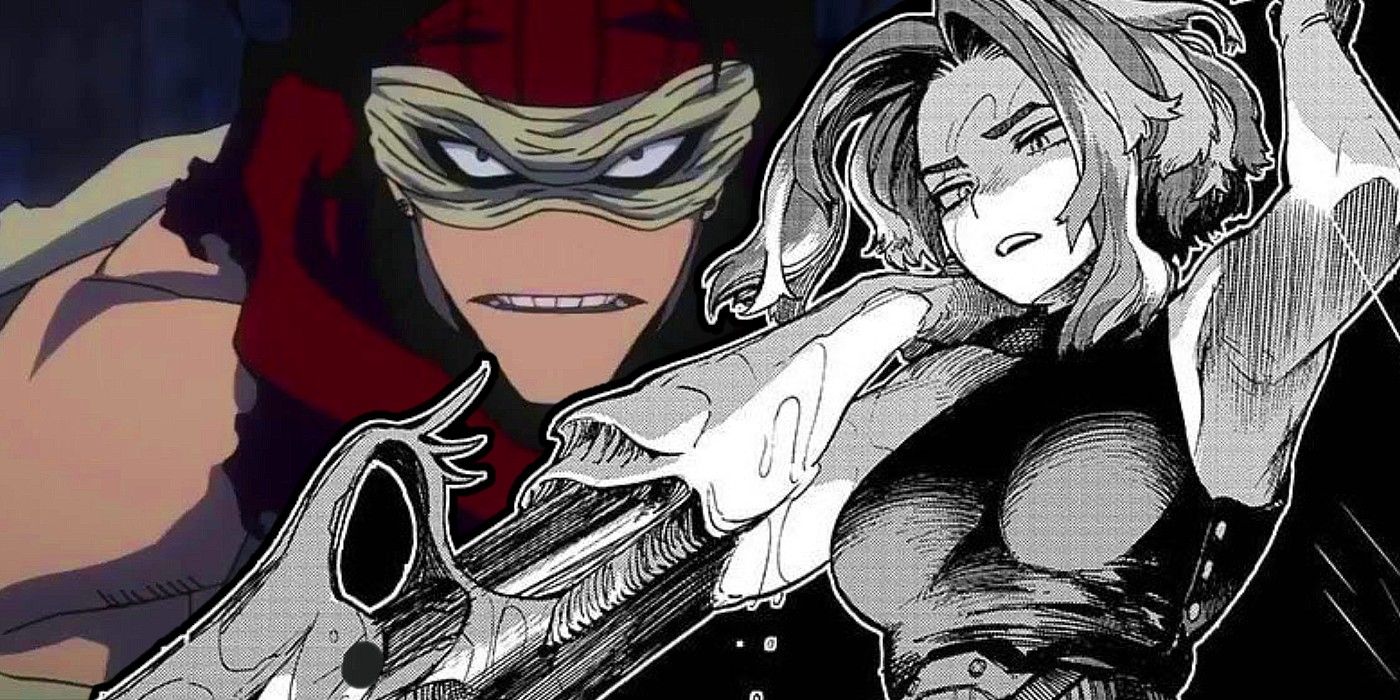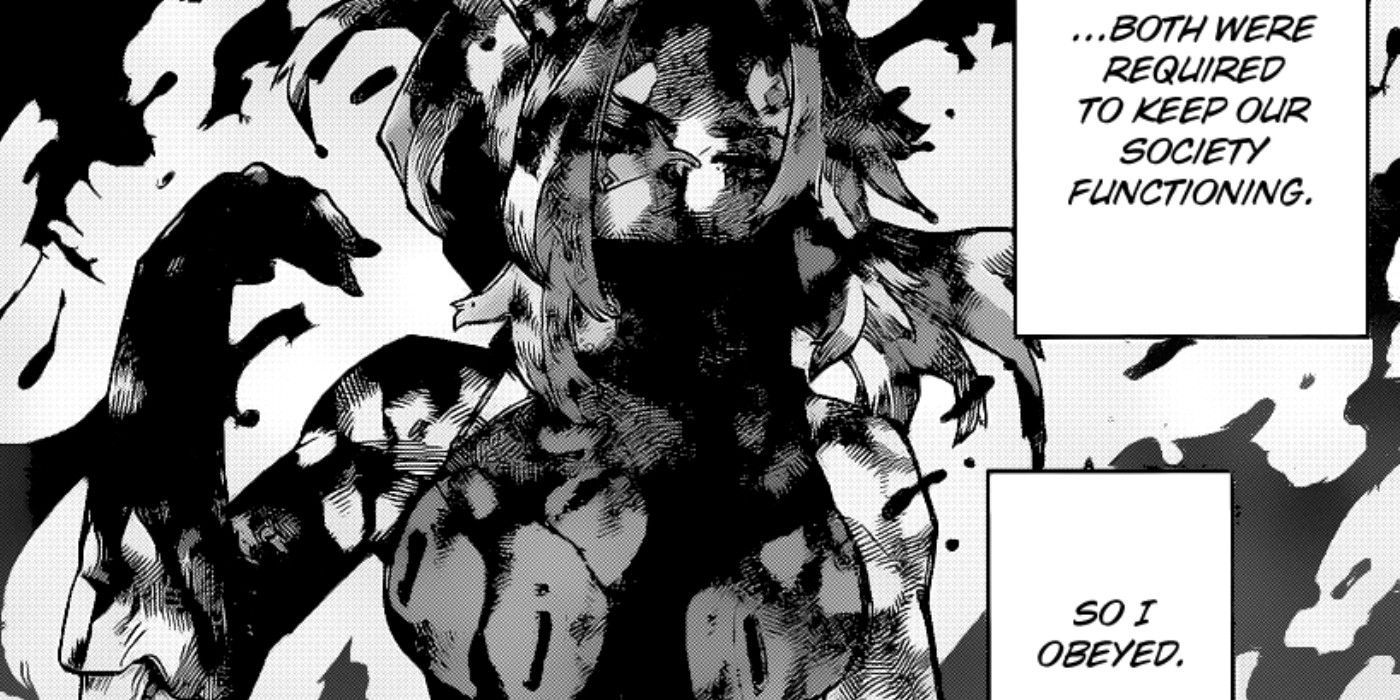Warning: contains spoilers for My Hero Academia chapter 314!
Lady Nagant might not be one of the many villains who have dedicated their lives to following Stain's extremist ideology in My Hero Academia, but her own experiences prove that he's right that "fake heroes" are harmful to society, and may even suggest that the very concept of heroes should be abolished.
A "fake hero" is someone who becomes a hero for the wrong reasons, usually involving personal gain. Stain is a highly ideological villain who will do essentially anything and everything within his power to cleanse society of anyone he considers a fake hero. He will collaborate with the lowest of the low to achieve his goals while still outright refusing to fight those who he feels do not deserve his considerable wrath.
Lady Nagant, the assassin assigned to take down Deku by the villainous All For One, used to be a hero herself, but later abandoned Hero Society and committed herself to their destruction. In chapter 314, Lady Nagant uses the occasion of her fight with Deku to reveal why she defected from her post with Hero Society's Public Safety Agency. Simply put, she had become sick of killing people for them and covering up for all of their crimes - and there were many.
Lady Nagant - a rare villain able to use multiple quirks - shares two instances with Deku that pushed her over the edge. The first involved a hero organization that had been plotting a terrorist attack against their peers. Rather than this organization ever facing justice, Hero Society made them disappear while covering up their crimes so that the public would never find out such a group existed. The second event that pushed Lady Nagant over the edge was the murder of the Public Safety Chairman; a death that everyone is aware of, including Deku, without knowing the reason he was killed. Lady Nagant reveals that the late chairman had requested that she murder a group of rogue heroes who were provoking citizens to commit crimes. She not only flat-out refused, but then proceeded to murder the chairman in cold blood.
Lady Nagant undoubtedly knows that the dissolution of Hero Society would lead to All For One rising to power. Even though the world under his dominion would be terrifying, she is able to accept this as the lesser of two evils. The real sin, to Lady Nagant, is Hero Society's deception and their efforts to actively cover up the truth. Existence under All For One might be chaos, but at least everything would be clear. He wouldn't hide anything. Although My Hero Academia's Stain despises fake heroes and wishes to create a new system that doesn't support what he considers a despicable charade, he doesn't wish to prevent the rise of true heroes like Lady Nagant does. Stain still greatly admires those he considers to be true, like All Might. Similarly, Deku is disgusted by Lady Nagant's experiences and doesn't condone the measures that Hero Society demanded, but he still believes the solution is to fix the problem, not to destroy everything in favor of an even darker world.
Regardless, Hero Society was right to worry about the public finding out the truth. Ever since the villain and disciple of Stain known as Dabi exposed the horrific truth about certain heroes, public opinion has followed a steady downward trajectory. Sharing the sins of transgressors as they occurred may have caused some damage, but hiding the truth has done far more, as Stain's symbolic rise clearly indicates. The abuse of the idea of heroism in My Hero Academia has created a huge ideological divide and covered up shocking crimes, raising real questions about whether Stain may have more of a point than fans once assumed.


